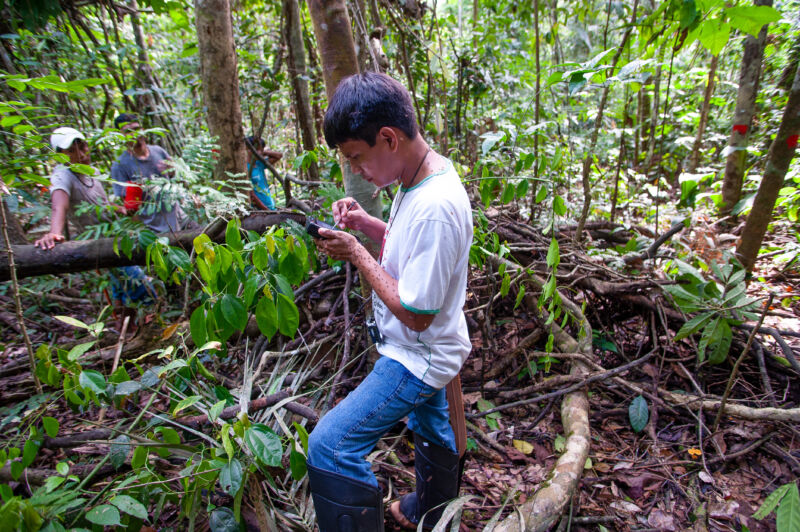Study: Carbon offsets aren’t doing their job, overstate impact

Enlarge / Paiter-Surui volunteers alongside "forest engineers" from a Brazillian Government support program using GPS equipment to map and measure the trees and vegetation in the "7th September Indian Reserve" Rondonia, Brazil. This information is intended to later be used to calculate the forest carbon content. Indigenous people have contributed less to climate change than has any other section of the population, yet they are among those most in jeopardy from its impact. (credit: Craig Stennett/Getty Images)
This article originally appeared on Inside Climate News, a nonprofit, independent news organization that covers climate, energy, and the environment. It is republished with permission. Sign up for their newsletter here.
Carbon offset projects claiming to curb deforestation are significantly overestimating their impact, according to a new study published in Science on Thursday.
Sold as a way to lessen the impact of greenhouse gas emissions by allowing polluters or consumers to purchase offsets or credits that allow them to keep emitting in return for funding projects that decrease emissions elsewhere, offsets have become a high-profile model for corporate climate action.